Andrew Bailie’s soaring voice can be heard in the impressive works with platinum recording artist Aloe Blacc, Lauryn Hill, Mononeon, and with members of Snarky Puppy. The singer-songwriting has shared the stage with George Clinton, Marcus Miller, Talib Kweli, Lalah Hathaway, and many others. As for his own material, Bailie’s songs are raw with emotion and guitar-driven.
Drawing elements from a variety of musical styles and traditions, Bailie’s songs are woven from his own hopes, fears and enchantments, tapping into the common human experiences that give us pause, inspire longing, or sets us ablaze.
The latest single from Bailie “Fuck The OPD” demonstrates his vision to the fullest effect. The opening guitar solo rushes into the soaring drums to blend a rousing drop into Bailie’s rich R&B-influenced vocals. “Fuck The OPD” demonstrates a firsthand experience of the unfortunate circumstances surrounding police brutality, especially towards those who are not white. Towards the end, a smattering of people speak out about the summer protests and the outcome from it. We recently caught up with Bailie to discuss the single.
So from the start “Fuck The OPD” is obviously not a vague song about platitudes, this is about specific events that you saw with your own eyes. In a brief summary, tell us about James Scurlock and Jacob Gardner, and the Omaha Police Department.
May 30th, 2020 was the first time I saw police violence against citizens first hand. It was the second night of protests in Omaha in the wake of the murder of George Floyd in Minneapolis. That evening at least 1000 people stood in a parking lot at Omaha’s busiest intersection. They waved signs and chanted and were generally orderly. For the second night in a row, Omaha’s police department showed up in riot gear. No names or badge numbers were visible as they lowered their face shields and wielded batons and pepper ball guns. I watched from across the street as tear gas was deployed behind the crowd, and in concert, OPD violently forced the demonstrators into the plume of gas. Some were arrested and others came out beaten and bloody. After the melee some folks headed downtown to protest in front of OPD headquarters. James Scurlock was among them.
Jake Gardner was lying in wait with a crew of at least 4. The owner of a downtown bar and ex marine had a well documented history of racist policies and actions at his club. Emboldened by 45’s words “when the looting starts, the shooting starts” Gardner was determined to set a trap for anyone that might wander in off the street. It isn’t known who broke his windows, but at some point Gardner made his way to the street with his father in tow. They approached James Scurlock and a few others with him. Witnesses heard the pair hurl racial slurs at Scurlock and his group. An altercation followed. Gardner then flashed his gun and fired at least two “warning shots” (I guess when you fire your gun on a busy street while white, police call them warning shots). At this point several people close to the scene attempted to disarm Gardner. James Scurlock was one of them. Gardner then fired his gun once more, striking Scurlock in the neck and killing him. It is unknown how many lives James Scurlock may have saved that night by attempting to disarm an active shooter.
Following the murder, Gardner was allowed to leave the scene. He was not officially booked when OPD finally did take him into custody. Less than 48 hours after the slaying, a witness saw Gardner board a flight at Eppley Airfield (Omaha’s airport) escorted by what appeared to be several off duty police officers. He was allowed to flee to California, but not before uniformed officers were seen taking selfies with him in front of his downtown bar where James Scurlock breathed his last breath. Unsurprisingly, in the wake of the murder, county procecutor Don Kleine refused to press charges. It was only after a city wide uproar that a grand jury was convened.
Many protests and demonstrations were held in the weeks and months that followed. July 25th’s protest didn’t seem like it would be different from the others. Demonstrators marched from midtown to the sight of the Scurlock murder and back. As they were crossing the Farnam street bridge above interstate 480 two blocks from their cars, OPD kettled them, simultaneously telling them to disperse and not allowing them to leave. Another melee followed. 126 people were beaten, pepper balled and arrested. The torture was just beginning. Many of the demonstrators were held in zip ties for up to eight hours before being processed into the Douglas County corrections facility. They were denied water on one of the hottest days of the year. One person suffered heat exhaustion and was taken to the hospital only to be returned and once again zip tied before processing. Once processed, up to 50 people were held in cells designed for no more than 14. At least one of the cells had no working toilets. The final “fuck you” came as DCC refused to process bail payments, holding the group for much longer still.
There have been other incidents of police violence in Omaha since the events of July 25th, including the officer shooting of Kenneth Jones that has gone largely uninvestigated. A culture of violence towards BIPOCs and anyone else that dares question OPD’s motives seems to be prevalent here.
It’s this culture of violence that I saw with my own eyes on May 30th, 2020. For nearly two months following that night, the words “Do not be confused when they tell the truth. They don’t give a fuck about your life” kept repeating in my head. After July 25th the rest of “Fuck the OPD” basically wrote itself.
You seem passionate about uplifting black voices, especially in music. Your sound is equally awesome and a little hard to pin down (blues? funk? soul? maybe all of the above?) but obviously influenced by black culture. What kind of balance do you strike with the music you write and the musicians you make it with?
Every musician, whether they know it or not, is hugely influenced by Black Culture. If you study the lineage of American music, it leads back to Africa. Period. There are no exceptions. Without black culture, there would be no music as we know it today. I feel it is our duty as musicians and artists to recognize and pay homage to that fact. To me that means attempting to uplift the people doing the heavy lifting in my community through my insignificant role as a storyteller.
When I lived and gigged in NYC there was a crew of Nebraska musicians that all supported each other. We were a tight group. We’d play gigs with all sorts of artists and musicians of many different styles and genres. Sometimes we would talk about “I need my blues hat for this gig” or “I need my rock hat for that gig”. I don’t like changing hats though. I want one hat that will work for me in any situation. Call it soul, R&B, blues, funk or whatever, I have a responsibility to remain true to my artistry. I can only strive to follow my ear and creative voice. Many times that means not limiting myself to a specific genre. Each song I write is unique and lives in its own space. The musicians I choose to play with understand that balance and go with me wherever we end up.
Can you outline all the spoken word voices throughout the song, are they people you know personally?
The three voices heard throughout the track are Bear Alexander, Bri Larson and Neal Duffy. Each of them were arrested and tortured by the OPD on July 25th, 2020. Neal and I go back a long ways, to at least 2003. Bear and Bri I met more recently but we got a bit closer as a result of the events of 2020. It was extremely important to me that their voices were included in the track. Their courage was deeply inspiring and definitely helped the song take shape.
Last fall they were a part of a lawsuit brought by the ACLU against the city of Omaha in regards to the police violence of July 25th. A court eventually ruled in their favor and deemed the actions of the Omaha Police Department as unacceptable.
The message behind the hook is obvious, but aside from these issues you are confronting in this song, what do you think of Omaha? How does it feel to call it home?
Omaha feels like home. My family moved here from Cleveland in ’98 when I was 12. You might say I’m a transplant. I went to high school here and eventually moved to NYC in 2012, returning in early 2018. I don’t have any other family here anymore but this is where I began my career as a performing musician. Those formative years really shaped me as a person and helped me understand who I was and what I needed to do with my life.
Omaha is an oasis of blue in an otherwise deep red state, and proved it by breaking for Obama in 2008 and again for Biden in 2020 (Nebraska is one of only two states that can split the vote in a presidential election), both elections I was proud to be a part of. Omaha is home to a growing and thriving arts scene even amidst the pandemic. People here generally have big hearts.
The folks that took part in the demonstrations of 2020 did so because they love where they live and they want to see things change for the better. They are using their voices to stand up for everyone’s basic human rights. They deserve better than a police department that chooses to trample their constitutional rights at the drop of a hat, while simultaneously protecting those willing to kill in order to maintain the status quo of white supremacy.
We’ll leave it off here; this song is fantastic and feels important to us. It’s instantly catchy and we’re glad to be writing about it. Is there anything else you’d like to add about it that people should know?
Thank you so much for spreading the word and helping people understand what happened here. This song feels important to me in a way that is different than any other song I’ve released, or probably will release. Everyone involved in its making added immensely to it and really poured their hearts into it. I literally could not have put this together without every single one of the amazing people that worked on it.


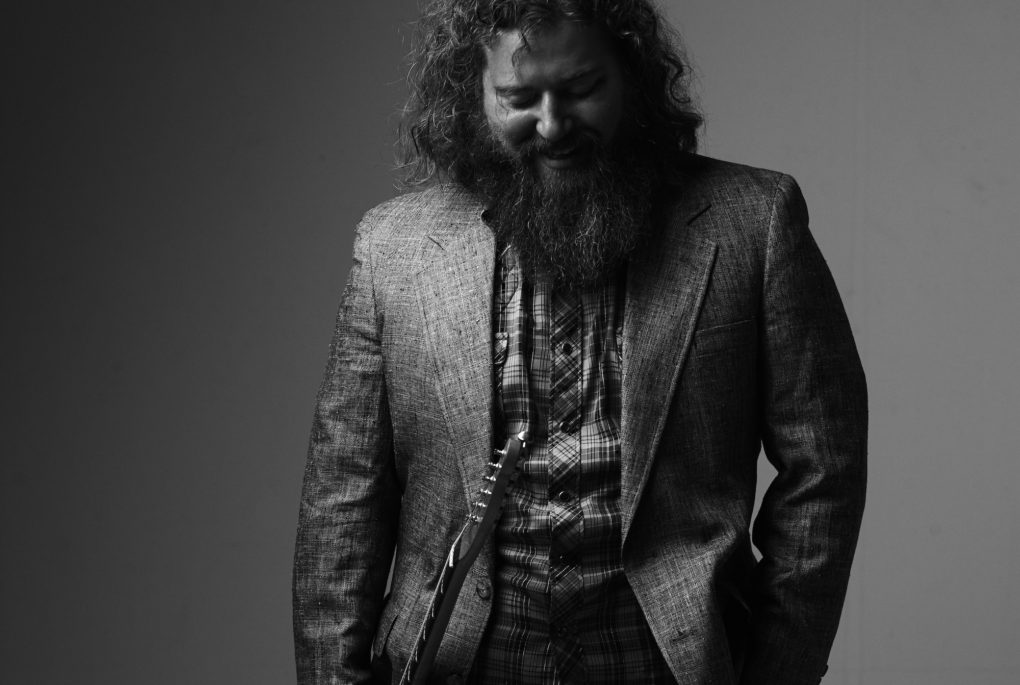
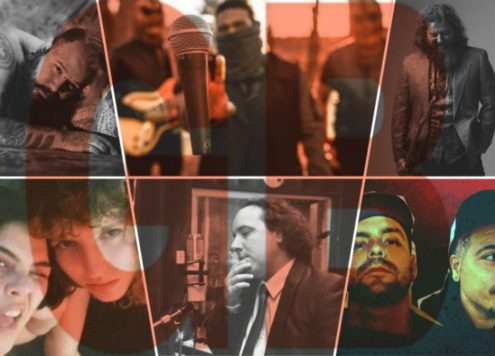
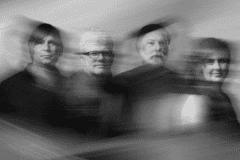
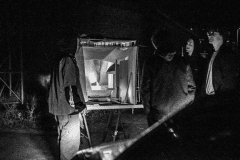
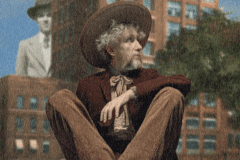
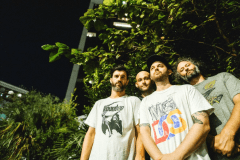

Social Media